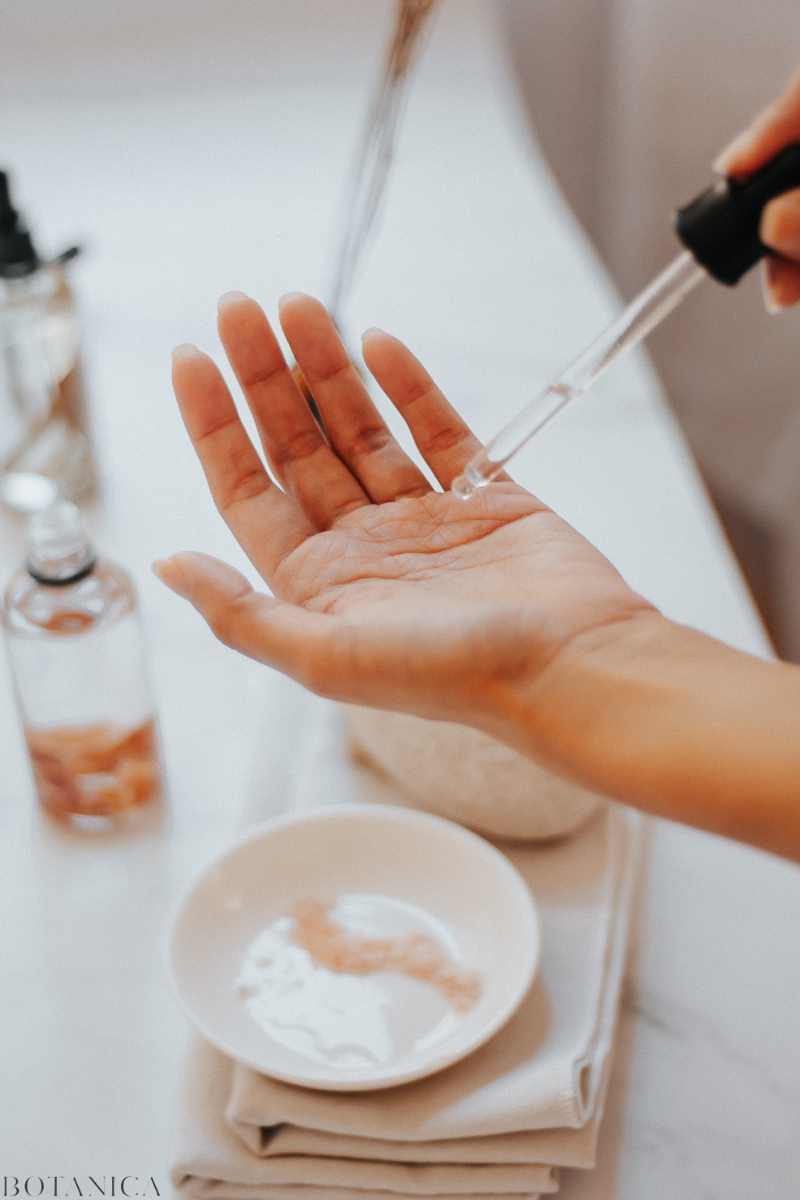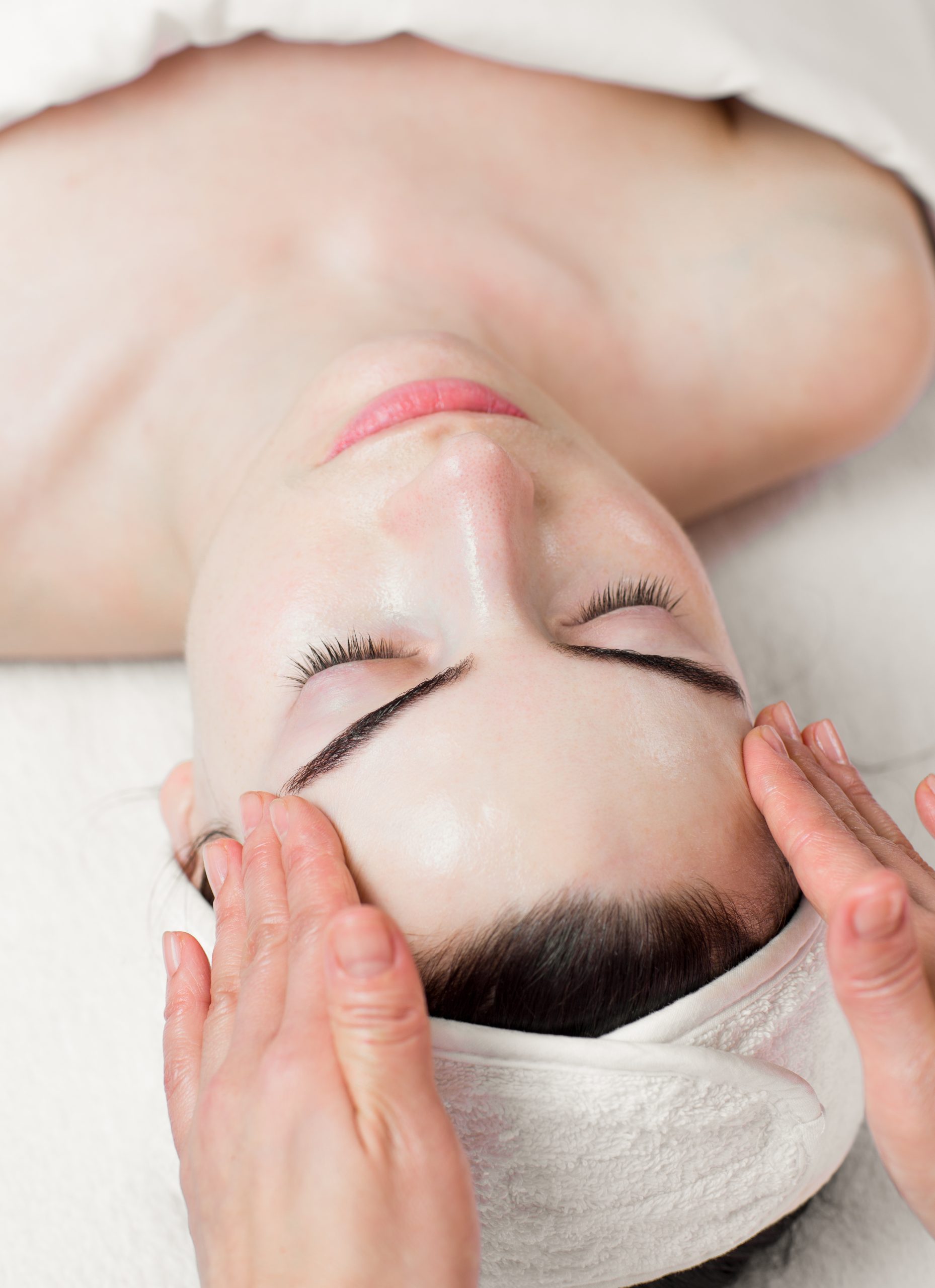
11 Anti-Aging Ingredients To Use For Youthful Skin
When it comes to anti-aging skincare ingredients, there are a few things you need to know. For one, there are only a handful of ingredients that are clinically proven to have anti-aging, wrinkle-reducing effects. (And none of them are overnight miracle workers.) That means you need to use them regularly and have patience before you see a marked difference in your skin. But the good news is, when you do incorporate said ingredients into your routine regularly and responsibly, the results can be quite dramatic.
So, with all of the saturation in the beauty and ingredient industry, which skincare ingredients actually work when it comes to anti-aging? Ahead, we share our thoughts on the most effective anti-aging ingredients to look for in skincare products, including the latest ingredients disrupting the market.
Anti-Aging Ingredients
Sunscreen
Studies have found that up to 80 percent of the visible signs of facial aging come from sun exposure, so a daily SPF routine is crucial. If you haven’t already, start wearing a broad-spectrum SPF 30 or higher every single day. Sunscreen is the number one studied anti-aging ingredient. It may not seem glamorous, but without sunscreen, any of the other products you are using will be canceled out by the damage from UV light exposure. Sunscreen not only protects the DNA in your skin from UV damage, but it gives your skin cells a chance to rest and regenerate, which helps diminish the development of wrinkles and uneven skin tone. So find a formula you love and wear it every single day—our favorite sunscreens include Supergoop, Pevonia, Elta MD, and Summer Fridays.
Retinoids
Behind sunscreen, retinoids are the second most effective anti-aging ingredient on the market. The word “retinoid” is an umbrella term that encompasses several more specific ingredients, including over-the-counter retinol and prescription-strength retinoids like tretinoin.
Retinol is a powerhouse anti-aging ingredient that works to stimulate cell turnover and increase our skin’s natural collagen production in the epidermis and dermis. Retinol—which you can pick up at any drugstore—is incredibly well-studied and well-supported as an anti-aging ingredient. But what’s even more effective is a prescription-strength retinoid like Retin-A. So if you’re serious about taking care of your skin for the long haul, speak to your dermatologist about a prescription.
While retinoids are considered to be one of the most effective anti-aging ingredients we have available to us, retinoids—especially prescription-strength retinoids—can also be extremely effective acne treatments.
Bakuchiol
If you can’t use retinol due to pregnancy, breastfeeding, or skin sensitivity, bakuchiol is a suitable retinol alternative that is still well-studied and efficacious in clinical trials. Bakuchiol is a natural derivative of retinol that also stimulates cellular turnover and increases our skin’s existing collagen production. However, what’s key with bakuchiol is it strengthens the skin’s moisture barrier at the same time, preventing potential irritation or moisture loss from occurring.
Vitamin C
Vitamin C is a potent antioxidant that has been shown to work well with sunscreen to protect the skin from UV and free-radical damage. Vitamin C also helps build collagen, and can help the superficial skin cells deal with hyperpigmentation.
Collagen occurs naturally in the human body and it’s an important substance for maintaining the skin’s firm, bouncy appearance—but it decreases as you age. So using a daily vitamin C serum is a great way to not only protect your skin from UV-related collagen loss but also to help stimulate collagen production.
Ferulic Acid
For an even more powerful vitamin C formula, look for vitamin C serums that are formulated with ferulic acid. The presence of ferulic acid not only helps to stabilize vitamin C formulas, but it’s also a powerful antioxidant in its own right. Ferulic acid works by neutralizing free radicals that eat away at our existing collagen production. This comes from UV damage, blue light damage, etc. Thus, it helps to preserve our existing collagen production and maintain a more youthful appearance.
Peptides
Peptides are building blocks of protein and send signals to help build collagen. And depending on the peptide, they can also send signals to improve moisturization in the skin. While less often discussed than ingredients like SPF and retinol, studies have shown peptides to be fairly effective when it comes to anti-aging. A 2019 study conducted on a group of 22 women over the age of 40 found that the topical application of peptides created significant improvements in skin wrinkles in just two weeks. Peptides are considered one of the best anti-aging ingredients for the lips in particular, and can prevent concerns like lip dryness, thinning, and cracking.
Hyaluronic Acid
For dry skin in particular, hyaluronic acid can deliver an immediate plumping effect as well as improve the skin over time. Hyaluronic acid is one of the best anti-aging ingredients. It will help hydrate the skin and is pleasing for dry skin and wrinkles.
Epidermal Growth Factor
Growth factors are large proteins derived from either human cells, animal cells, or plant cells that promote the increase of structural proteins like collagen and elastin. They also aid in tissue repair after an injury, which makes them an ideal product after in-office procedures, like microneedling and lasers.
Polyglutamic Acid
Polyglutamic acid is a powerful humectant derived from fermented soybean that can penetrate skin’s layers to provide incredible moisture. It also boosts the synthesis of natural moisturizing factors in the skin. It helps deliver more hydrated and plumper, youthful-looking skin.
Exosomes
Exosomes are stem-cell growth factors that support skin health and rejuvenation, reducing signs of aging. The exosomes are derived from human umbilical mesenchymal stem cells. The product reduces the appearance of stubborn pigmentation, redness, fine lines, and wrinkles. It also contains hyaluronic acid, 4 types of Vitamin C, niacinamide, ceramides, and copper peptides.
Ceramides
Ceramides are another buzzy ingredient popping up everywhere in anti-aging skincare products. What are they, exactly? Ceramides are known to be part of this complex family of fats or lipids called a sphingolipid. Ceramides help keep the skin barrier intact, which contributes to a complexion that’s firmer, more hydrated, and overall more youthful-looking.
Botanica Facials
While taking care of your skin at home is a must, getting a monthly facial is the best way to keep your glowing complexion. Your skin care routine plus facials will have your face plump, youthful, clear, and healthy. Call Botanica today at 727-441-1711 or book online!



Leave a Reply